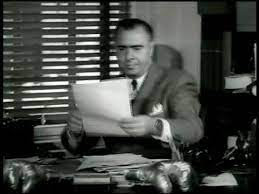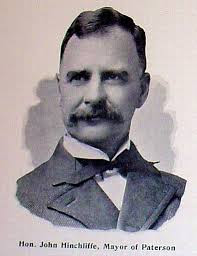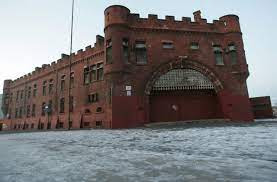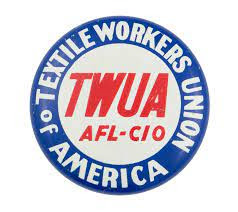I am a lifelong resident of Paterson which has through the years been a melting pot of various nations around the world. My parents came to New York, and then to Paterson shortly thereafter, from Hungary. I was born on Godwin Street, a characteristic poor but honorable neighborhood of industrious, friendly people.
Saturday night, after the kids went to sleep, mother washed the clothes and then hung them on the line in the backyard to dry. She made sure to remove them in the morning to show respect to the parishioners of the Dutch church next door as they went to church so they would not think that the clothes had been washed on their sacred Sunday morning. Mother became known for that, though it was typical of how a community lived in our neighborhoods.
We lived at 72 Godwin where father had his cobbler shop in the front. The rest of the house was partitioned off. There was a coal-pot stove behind the partition and the bed my brother and I slept in.
It was characteristic of Jewish families in those days that they never sought relief in welfare. Father was not a great wage-earner, so mother maintained the family by feeding some boarders from the neighborhood at dinner. She was the “mother hen” of the neighborhood; if anyone was sick they called Mrs. Greene who used to feed people who were underprivileged. We never had anything, but they had less.
We went every day to a bearded rabbi on Godwin Street, Rabbi Schochet. Also attending this cheder were the late Jack Stern and his brother Dave, Harry Levenstein, and the Schamach boys (Judge Schamach and his older brother Charlie). It was a strict-discipline cheder. The boys all sat around the kitchen table. The rabbi was a strict disciplinarian who was handy with the little rap with a ruler on our knuckles. We went to the Little Shul which later evolved into the Water Street Shul. When there was discord in the congregation on Godwin Street, a splinter group formed the Water Street Shul. Rabbi Rifkin, the shamus of the Little Shul came along.
In those days, a kid was not an idler; he had to earn something for the household. We had moved to Temple Street, across from School 4 where my brother Joe went. My father passed away and my mother acquired a little confectionary store from the Dresner family. I built up a paper route.
When I went to Paterson High School, I was a correspondent for the News. I did the high school notes. At Paterson High School, I joined boys and girls who met once or twice a week for the Literary and Debating Society. When I graduated from high school I had planned to study law, having won a scholarship for NYU. I couldn’t use it because they needed my help at home. My brother Joe was working for the Erie [Railroad], traveling back and forth to New York every day but there still wasn’t enough family income. After high school, while serving a clerkship in the office of Harry Schoen and Sidney Adelman, I also worked in the Gent’s Furnishing store, awaiting the call from Mr. Baum at the News. I went to work at the News when they were seriously short-handed and I became the acting City Editor (the youngest City Editor at less than 20 years old). I could write well and had a good nose for news. I became active in political writing. I stayed on and grew from City Editor to Associate Editor and Managing Editor with Mr. Haines.
I was a very effective leader in the community. When there was a serious strike threat in 1931 at the Fair Lawn Dyeing Company, I was asked to act as the official arbiter. We met in the Alexander Hamilton Hotel with the nucleus of the infant dyers local. When a man from Pennsylvania who represented the big silk-dyeing interests objected to my presence, the labor people said, “If Abe Greene goes, we go too.” As we started to walk out, Fair Lawn Mayor Kuiken and Paterson Mayor Hinchliffe followed us and pleaded with us to continue to talk. An hour later, we settled the strike threat. I became a factor in industrial relations around here.
[At a later point,] The silk industry then had about 15000 workers and that many workers on strike becomes paralyzing. They were on relief from a fund from the people of Paterson. Businesses small and large suffered. A committee of labor people came to me at the News office where I was then City Editor. They wanted me to try to bring both sides together since a 13-week strike was hard on the community. They [the strikers] were men and women, a bunch of very fine, hard-working, dedicated people. Sol Stetin, now president of the Textile Workers of America, was in that group as a silk worker. For three days, I did my job at the News and then went over to join them at Council Chambers in City Hall. On the fourth day of the strike, I invited the conferees in the strike situation to join me at a boxing match at the Paterson Armory and introduced them to the crowd. After they received a big hand from the crowd, we went to dinner at Nat Bluestein’s restaurant and then back to City Hall [for further negotiations]. The next day at noon we invited them all to get the strikers out to City Hall. The streets were cut off from traffic. I made the announcement that the strike was over. The next year, [when I was honored for public service] at a ceremony, Mayor Hinchliffe said, “I was in this with Abe Greene, long may he wave.” That was a big joke for a long time around here. |
|




